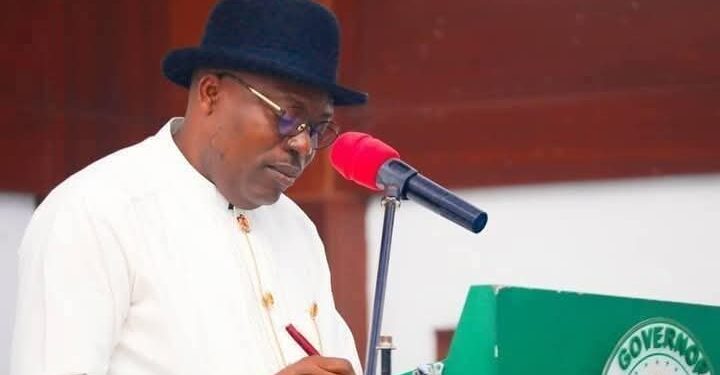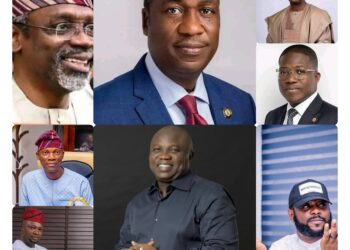
By Ibrahim Kegbegbe
Words are powerful. They can build a nation, inspire a generation, or, in the wrong hands, incite chaos and destruction. In the case of Rivers State Governor Siminalayi Fubara, his words—delivered on national television—have now come back to haunt him. On Tuesday, March 18, 2025, the federal government suspended Fubara, his deputy, and all members of the Rivers State House of Assembly. The reason? A chain reaction set in motion by his seemingly cryptic but ultimately reckless statement:
“Let me thank everyone. Most especially our youths. Be strong. Don’t be by talk. I assure you, at the right time, you will get instructions.”
In a state already plagued by political tension, economic uncertainty, and security challenges, these words were not just ambiguous; they were dangerous. And now, the consequences have unfolded in a way that should serve as a lesson to every public officeholder in Nigeria.
When Words Become Instructions
The timing of Fubara’s speech was crucial. He made the statement after the Supreme Court ruled on the political battle involving the Rivers State House of Assembly and the executive arm of government. It was a moment that demanded diplomacy, calm, and reassurance. Instead, he chose to speak in riddles, a move that seemed calculated to energize his supporters while subtly threatening his opponents.
And then, as if on cue, the vandalism of oil pipelines began. It was almost as though the “instructions” had finally arrived. The link between the governor’s words and the subsequent destruction may not be explicitly proven, but the correlation is too glaring to ignore. The question now is: Who bears the loss? The oil companies? The federal government? Or the ordinary people of Rivers State, whose economic survival depends on these resources?
Populism vs. Governance: The Danger of Political Pandering
Governor Fubara’s fall from grace is a classic example of how populism can backfire. In the heat of political battles, many leaders make the mistake of prioritizing applause over responsibility. It is easy to rile up a crowd, to play the victim, and to paint one’s political adversaries as the common enemy. But what happens when the people take your words too seriously? When they act on the perceived message behind your rhetoric?
A leader must never allow a headless mob to dictate his political fate. The cheers of today can quickly turn into condemnation tomorrow. The same youths who hailed Fubara when he made that statement are not the ones suspended alongside him today. He alone will bear the full weight of his words.
Federal Government’s Intervention: Justice or Overreach?
The suspension of Fubara and his entire political team raises another controversial question: Did the federal government act within its rights, or is this an overreach of power? While there is no doubt that his words had severe implications, some critics will argue that his suspension sets a dangerous precedent. If the federal government can remove a sitting governor based on reckless speech, where does the line get drawn? Should every public official who makes an irresponsible statement be thrown out of office?
However, the counterargument remains strong: Fubara was not just any politician; he was a governor, an elected leader whose words carried weight. He was expected to uphold the peace, not encourage rebellion—whether directly or indirectly. In a nation struggling with security issues, no leader should be seen as fueling anarchy.
A Lesson for Nigerian Politicians
The political drama in Rivers State is a wake-up call for Nigerian leaders at all levels. Words have consequences. When a governor makes a reckless statement, it is not just an error in judgment; it is a potential trigger for violence, economic sabotage, and national instability.
As the dust settles on Fubara’s suspension, one thing is clear: Nigeria needs leaders who understand that governance is not about emotions, vendettas, or political survival. It is about responsibility. It is about making decisions that benefit the people, not inciting actions that will destroy their future.
Governor Fubara has learned this lesson the hard way. The question is, will others learn from his mistake, or will history repeat itself?
















